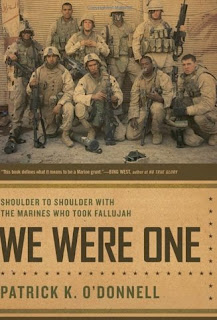In this forum discussion, it is hinted that the lack of challenge in Combat Mission Shock Force is that it lacks a worthy opponent with the right tools of war.
The notion that modern superpowers can win wars with little effort may have started when the first Tomahawk missiles flew from the Persian Gulf to Iraq back in 1991. Ever since then, there is this pervasive view that if a NATO superpower goes to war, it should be a short and almost blood-less affair.
There is no doubt that NATO superpowers have awesome tools of destruction. The superiority of equipment is in our favor. Every branch of the US Armed forces (except for the US Marine Corps, whom our leaders have chosen to ignore at our own peril) has the fanciest tools a professional soldier can imagine. We have the biggest guns, case closed ...
... Not!
You don't have to be a military insider to grasp how hard, tactically challenging and blood-letting is to fight modern wars.

Battle of Fallujah, almost a casualty every block of urban combat

Big fight at An-Nasiriyah during Operation Iraqi Freedom. Even friendly fire incidents!

Battle of Fallujah again, it is heart breaking to see how you can loose half a platoon in just a few blocks of urban fighting
What it has driven our armed forces into victory is not having the biggest guns but the training and prowess of our servicemen.

In this book, Stephen Biddle argues that in an armed conflict, even when one side has an edge in technology, training is the determining factor for victory and the best indicator of military power. If you have a chance to read this book, take a special peek at his war gaming of the Battle of 73 Easting.
Back to Combat Mission Shock Force, in the same way that hastily thrown together trivia doesn't help to understand a particular topic, data worshiping is not a good way to understand modern conflict.
The argument that Combat Mission Shock Force is un-challenging because the Syrians have less than stellar arsenal is way off. In real life, a war with Syria would be not a cakewalk. Combat Mission Shock Force is un-challenging because poor scenario design and other flaws in the game engine.
Is the myth of unbeatable modern NATO forces going to make war game developers shy away from designing modern conflict war games and simulations?
I hope not.
Cheers,

No comments:
Post a Comment